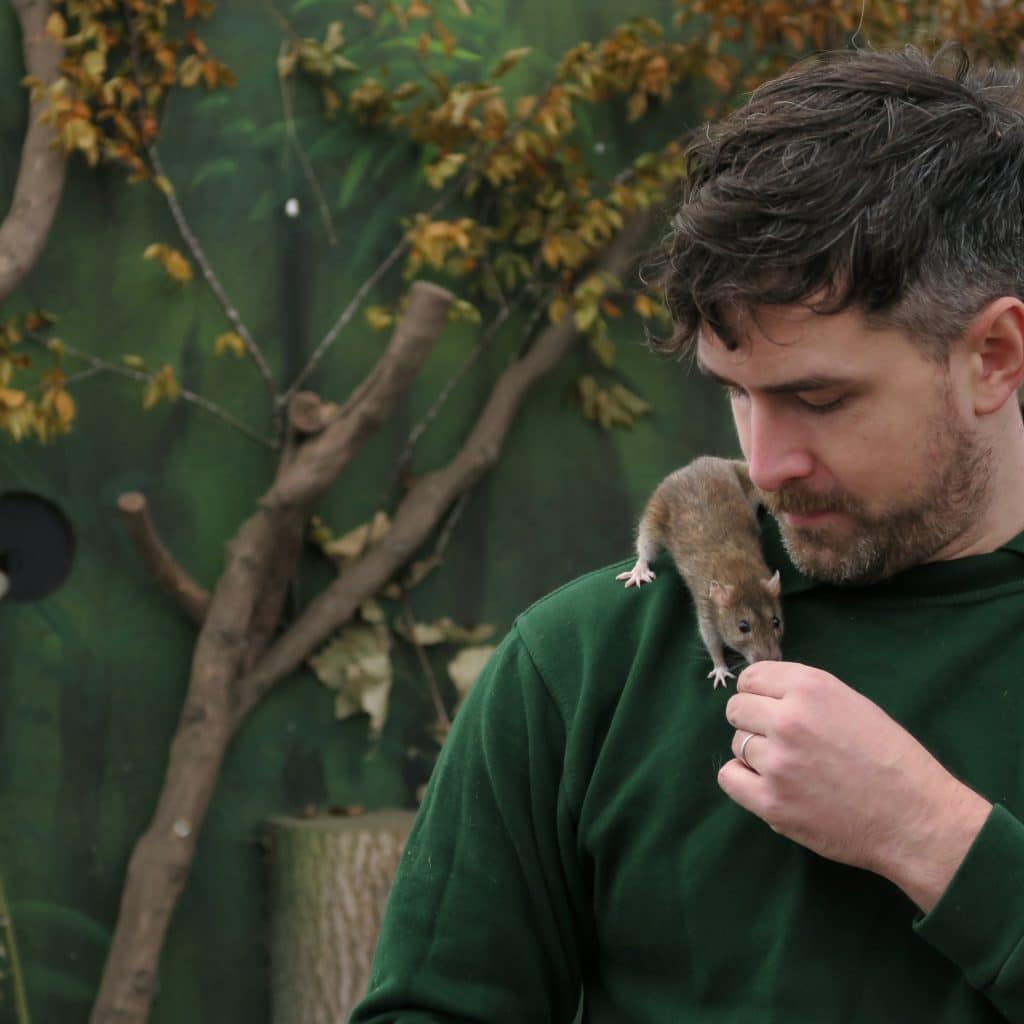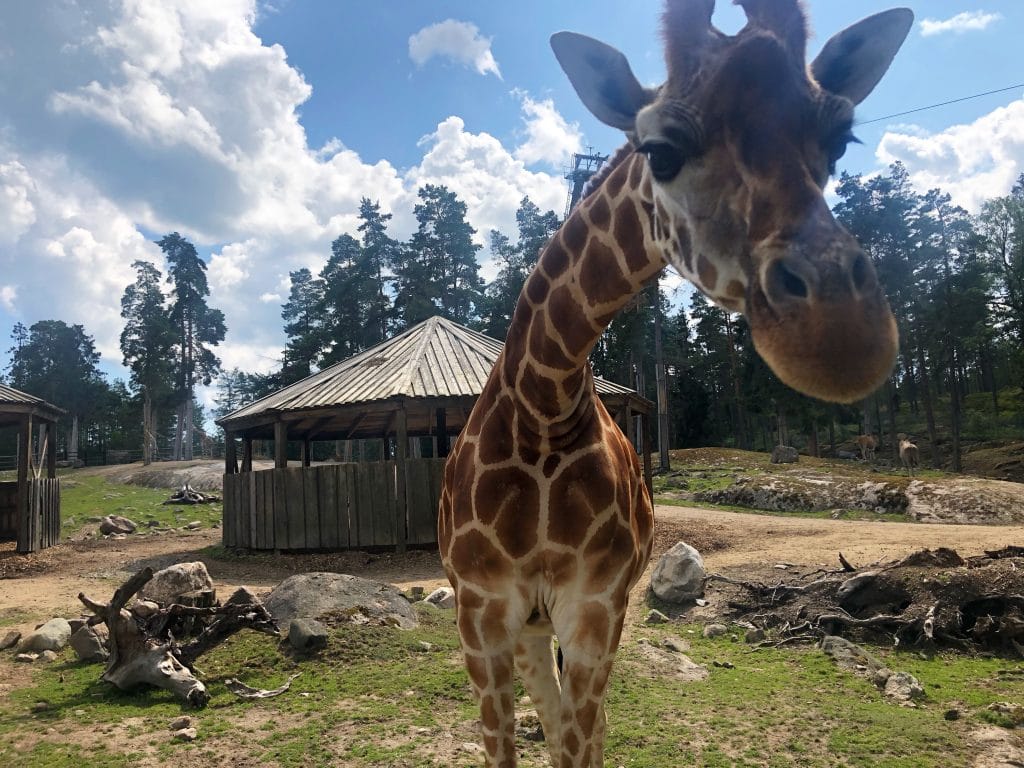As animal care professionals we talk a lot about the relationships we have with the animals we care for. All of us would say that we have strong positive relationships with certain animals. Many keepers value the relationships they have with those animals and draw parallels with close friends, family and partners. But in zoos keepers readily say “I have a great relationship with my animals” but is that actually the case?
Like all good relationships it starts with food! But even daily feeding of the animals might not be enough to raise the level of the relationship as high as we want it to be. Your animal probably knows you when we come with their buckets, but what do you think would happen if another keeper delivered the food? Would your animals be afraid at first or would they approach expectantly? More often routine plays a factor here rather than relationship. So what does having a strong relationship look like and why is it important? Working with killer whales for example, it’s important to build up a strong relationship as it has an impact on trainer safety. The theory is, if the relationship is strong enough then the safety of the animal and the trainer is at a higher level. Does this theory work for other species? How can you improve a relationship with an animal?

What do you need to build strong positive relationships? For humans we need a lot of different things. Our relationships are not solely based on brief positive interactions with the same person each day. We need more, we need communication, comfort, trust, laughs, we need positive experiences that result in a strong relationship with a good foundation. Trust is an important factor in creating strong relationships. If you deliver food everyday, every session, but they won’t eat until you’ve left it’s likely that the trust isn’t there and the relationship isn’t as strong as first thought.
In November 2018 I was at a Zoo for a training conference and workshop to assist the team with their training programmes. While observing training sessions, one of the sessions I observed was a shifting behaviour with spider monkeys. The keeper mentioned that they didn’t have a high success rate. Often one of the monkeys would sit in the slide preventing it from being shut in the house. The keeper mentioned that others have more success but it depends on the relationship. Eager to help I wanted to try something, the keeper mentioned again about my lack of relationship. She gave me the go ahead, I took a small bucket and before I even got close enough the spider monkey went into the raceway arm out stretched for what was in my bucket. This raises the question whether the animals have a better a relationship with our bucket than keepers.
A problem we often face in the zoo with regards to training, is that relationships can take an extremely long time to build, sometimes talking months or even years with some species, and just seconds to lose. Last year at Kolmarden Wildlife Park had a baby giraffe born and required a routine health check. The team suggested that those who trained the mother, a giraffe called Marilyn, were not involved.

However, one of the keepers did so anyways. The day of the health check Marilyn was nearby and was able to see which keepers were involved. It has been 6 months and Marilyn often still refuses to participate in training sessions and even taking rewards from that particular keeper! We are currently working on rebuilding the trust between Marilyn and the keeper.
So what steps can you take to improve a relationship? Potentially, that trust is gone and needs rebuilding like the example above, or in some cases you’re starting from scratch. But what happens when you have a good relationship with one animal but not another. It is the same with people, we have closer relationships because we spend more time or have more things in common. In some instances animals can be possessive over certain individuals and for that animal they have a preferred person list. For this example we are going to focus on parrots. Parrots commonly get possessive over certain people and can react negatively to others, even those considered to have a strong relationship.
In this video we have a ‘feisty’ Blue & Gold macaw, she has quite a good relationship with both keepers but when the less preferred keeper tries to get her on the arm, in the presence of the preferred keeper, she has a tendency to bite. This theory was tested with the removal of the preferred keeper and there were no instances of aggression. While that can be a solution it is better to work through the issues to ensure a well socialised bird. In this scenario, spending time with the animal and both keepers, makes the whole experience positive for everyone. It starts with small approximations, the bird is on the arm of the preferred keeper but is being fed by the less preferred. This eventually turns into a situation where the animal learns to accept both keepers.
At the dolphinarium at Kolmarden each trainer has their own behaviour to train. I’m not included in this structure and do not train the dolphins new behaviours because I’m not there often enough. So when I do join in I work a lot on relationship based sessions with them. Sessions where I don’t reinforce primary but give that for free before or after. Play sessions, unpredictability and energy. I have to bring a fun energy, because that’s all they have to build trust from. I’m not just there to feed them and then hope that trust builds from there. This works with every animal as long as the animal understands the rules of training, and of course it’s a trainer who knows what it takes to make the individual or species trust you.
Next time you are out feeding your animals, look to see who is coming over, who waits until you are leaving. Maybe think about how you can test your relationships to see how strong they really are. This is subjective and it all depends on what you see as a relationship. I mean, a relationship could be nothing more than you being their keeper and they know that you come at set times with their breakfast, lunch or dinner or it could be so much more.

We believe that trust is key when building and maintaining a strong relationship.




0 Comments